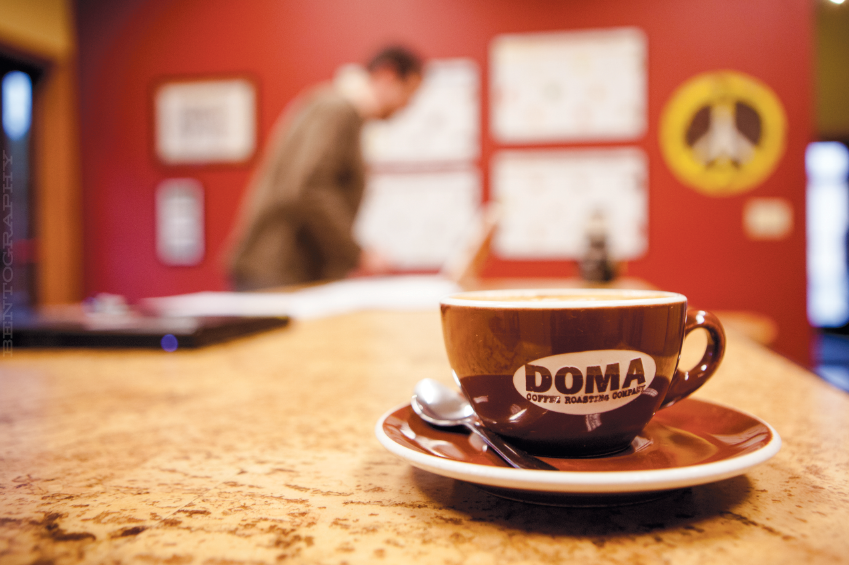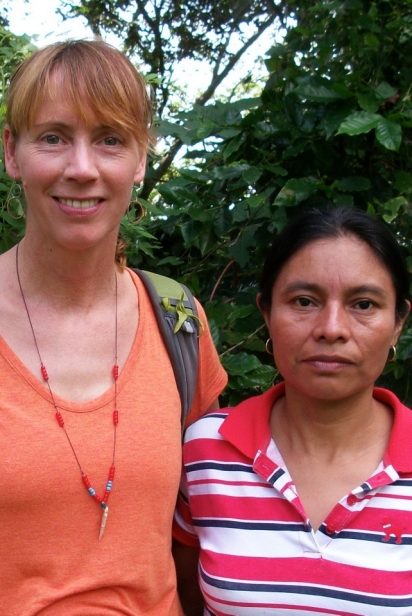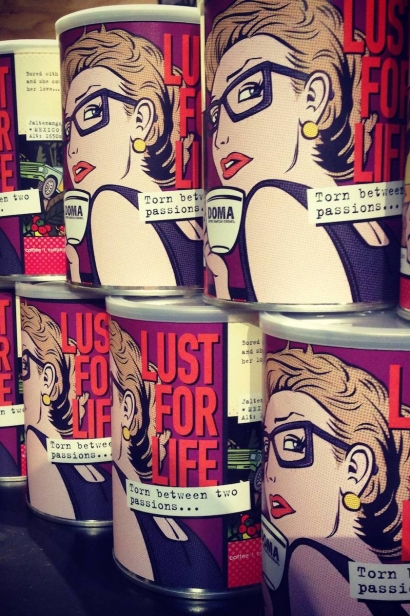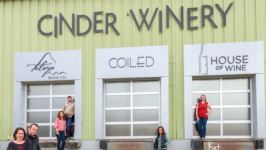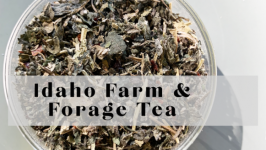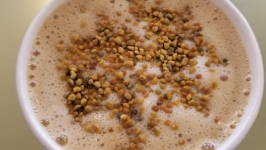DOMA's Doing Good to the Last Drop
Terry and Rebecca Patano know coffee. From bean to cup, Terry’s passion for quality, coupled with Rebecca’s pursuit of social responsibility, create the culture that is DOMA Coffee Roasting Company.
“We were [coffee] consumers,” says Rebecca, as we sit around the table in DOMA’s Post Falls training lab, coffee in hand “The notion of the culture of coffee, as in a café or drinking coffee – that is how we both got into it.” After operating an established coffee house for five years in Moab, Utah, the Patanos decided it was time for a change, especially since they had started to grow their family. In 1999, they sold their café, loaded their two sons, Dominic and Marco, into a Volkswagen van and took a road trip. Their journey landed them in North Idaho.
Terry Patano’s voice is quiet and concise as he recalls roasting in their garage and the multitude of coffee beans sacrificed to his quest for just the right blend, “I knew I wanted to roast good coffee. And that was it.” In 2000, he perfected their first coffee, Vito’s Espresso, and word spread by reputation. Their home became a place where friends, clients and family came and went, and coffee was at the center of it all.
The name DOMA, the combination of their sons’ names, also coincidentally means house or home in Croatian. From roasting out of their garage, to opening DOMA Café (now closed), to growing praise, DOMA Coffee remains a homey place.
But the Patanos’ search for significance doesn’t end with coffee.
From the beginning, Terry Patano’s priority was buying high-quality beans, but he didn’t seriously consider their origins. “I knew about organic,” he remarks, “but eventually I started to ask, How do we know that the farmers are paid a fair wage?” Cooperative Coffees was the answer to their question.
Cooperative Coffees is a green coffee importing cooperative of 23 community-based roasters in the USA and Canada. “What we found with the co-op,” Terry says, “was a direct link to working with the farmers. It was what we had been looking for, and they were ahead of the curve.” Knowing the farmers, visiting the farms and buying with transparency have made all the difference to DOMA.
In 2004, DOMA became the first USDA Certified Organic coffee roaster in Idaho. However, the Patanos don’t merely rely on labels to communicate their belief in solidarity and social justice. Rather, they endorse transparency by striving to tell their coffee stories differently: through award-winning designs and labels, more face time with consumers, a thriving farmer’s market booth and distinctive floor displays. They stimulate curiosity and action by disseminating to their customers a higher understanding of the flavors, values and choices that make DOMA Coffee tick. They are also deeply involved in many aspects of the Fair Trade, sustainable and organic communities, working to make a difference in the lives of farmers, customers and communities, including the Idaho Organic Advisory Board. “We are a speck if you consider what Starbucks or Green Mountain are doing,” admits Rebecca Patano, “but these projects give us the opportunity to look outside the for-profit business model and influence our community better.”
Today, DOMA is cultivating their established reputation through collaborations with like-minded businesses and individuals, such as Selkirk Abbey Brewing Co., Dry Fly Distillery and Kootenai Environmental Alliance. Two of DOMA’s blends are vehicles for bettering the Inland Northwest community: “Good Coffee” raises awareness for clean water through Spokane Riverkeeper and “La Bicicletta” sponsors a North Idaho women’s cycling team and was the vehicle for raising $10,000 for a badly injured local cyclist. In Boise, the Patanos also provide Big City Coffee with their Double D decaf and Big Titty Blend, two coffees whose profits support breast cancer research through early mammogram detection. “Every once in a while something comes along that makes you pause and take a deep breath,” Terry Patano professes. “We are honored and humbled to be a part of things like this.”
With empty coffee cups on the table, Rebecca Patano sums up their vision: “It takes time and focus to balance effecting positive change and running a business. It’s hard, but it adds so much. Keeping our focus on great education and quality coffee—and reaching out, not just to our farmers, but also our community – it’s incredibly rewarding.”
Where to find DOMA Coffee
Boise Co-op | @boisecoop
Big City Coffee & Café | @bigcitycoffee
River City Coffee & Café
Whole Foods Market
Fitzgerald’s Bicycles | @fitzgeraldsbicycles
DOMA Coffee Roasting Company | @domacoffee
Cooperative Coffees | @cooperativecoffees
Selkirk Abbey Brewing Co
Dry Fly Distillery | @dryflydistilling
Kootenai Environmental Alliance
Spokane Riverkeeper | @spokaneriverkeeper


